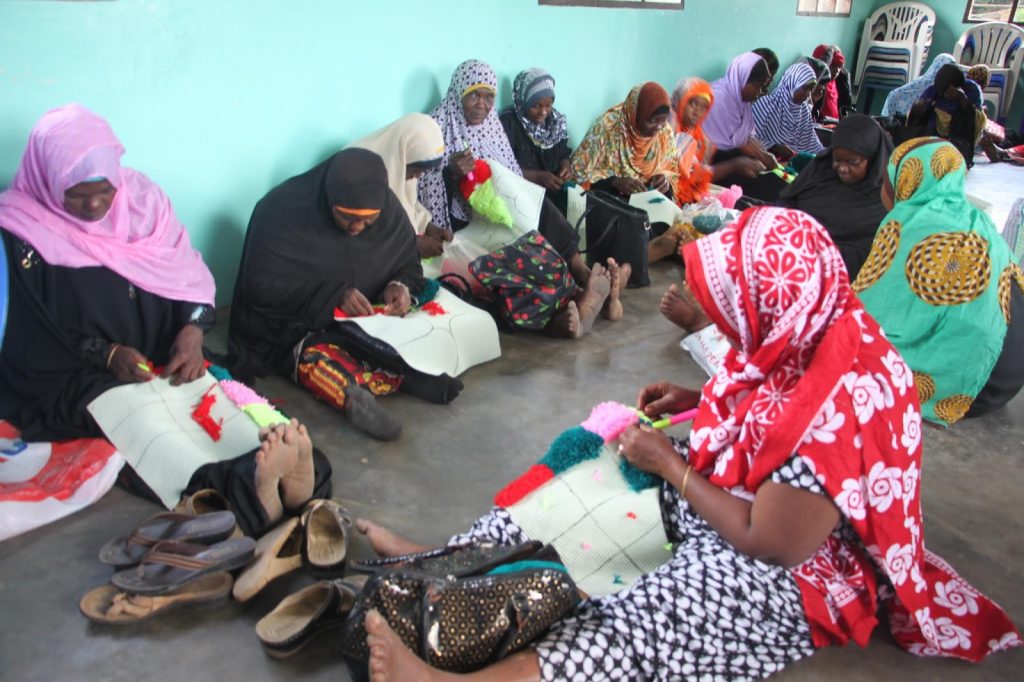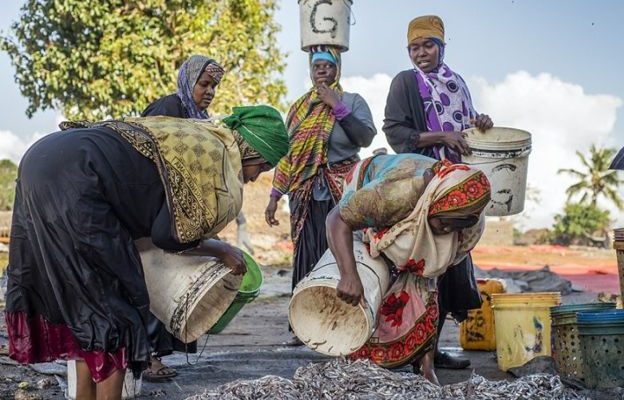Women entrepreneurs continue to be important to the Tanzanian economy. This assessment reveals that many initiatives, policies, programmes, and organizations have been introduced to support women entrepreneurs and women-owned enterprises.
Scoring matrices provided scores for the six Women’s Entrepreneurship Development (WED) framework conditions and each of the related sub-conditions, respectively.
The matrices show effective policy coordination for the promotion of WED is the strongest as it scored higher than other framework conditions. This is attributed to by the various initiatives taken at government level to ensure that WED is given priority from the policy level to the institutional level.
The lowest performed framework condition is on gender-sensitive legal and regulatory system. This is attributed to the fact that only one indicator applied to the sub-condition related to ‘WOEs and labour regulations’, reflecting that efforts to provide women entrepreneurs with orientation on labour laws and regulations are weak.
There is also limited evidence of efforts to ensure that women are informed about business registration regulations and procedures and assisting them with complying with the requirements (thus many women are operating informal enterprises).
Women are also at a great disadvantage when it comes to existing property and inheritance rights, mainly concerning the application of customary and Islamic inheritance laws and limited recourse to their legal rights.
It has been recommended that if the government wanted to advance women’s economic empowerment the following should be done: Organise awareness campaigns on the importance of access to formal education for girls up to higher levels and in sectors that have job creation potential (non -traditional sectors).
Raise awareness of women entrepreneurs to the need to register their businesses, including the inherent costs and benefits through BRELA and existing networks of BDS, financial providers and business associations.
Organize communication campaigns targeting women and men, especially in rural areas, on women’s right to own property and other assets they are entitled to and reviewing female-male stereotypes.
Seek to gather and regularly update relevant information on WED policies and programmes in a centralised platform. Evaluate policies and programmes over time, with a gender, efficiency and impact lens in order to see whether policies are working for both women and men.
Build the awareness and the capacity of gender focal persons in each ministry on the importance of WED for the country as well as existing measures to support it.
Build off of the existing micro small and medium enterprises (MSME) baseline data set from Ministry of Industry and Trade (MIT), reaching out to a larger and more representative sample and analyse the data from a gender perspective to identify constraints and opportunities leading to formalization and job creation among women.
Access to gender-sensitive financial services. Banks and micro-finance institutions (MFIs) should be encouraged to review their service offer to ensure it responds to the needs of women entrepreneurs, including technical inputs and non-cash technical transfers, and develop strategies and actions that increase their service provision to women entrepreneurs.
Financial service providers should put in place credit guarantee schemes to support WOEs and ease their access to capitalization for starting and growing their businesses. Financial service providers should periodically meet with women entrepreneurs representative organizations to raise awareness on the needs and constraints of women entrepreneurs and share concerns.
The government should design a review mechanism for disbursement of loans and grants through government funding windows to ensure that women entrepreneurs in underserved rural regions benefit.
BDS services responding to needs of women entrepreneurs Promote financial literacy programmes alongside management skills training for women to help them assess their financial needs and opportunities and take calculated risks that may enable them to grow their businesses past the micro size in the future.
Strengthen Business Development Support (BDS) providers to be able to (re)orient women entrepreneurs towards market niches with more growth potential and help micro-enterprises led by women to
BDS providers should extend their service provision (or partner accordingly) to women entrepreneurs in order to offer a range of services going from marketing, customer care, and sales to essential post-training supports, such as mentoring, coaching, networking, ICT facilities and other needs-based workshops.
Access to markets and technology Support women entrepreneurs’ participation in international trade fairs and international markets, including rendering regional protocols accessible and sharing this information through BDS providers.
Establish a target for WOEs participation in procurement2, with a simplified process and raise awareness among service providers and WOEs on compliance. Through existing BDS providers, establish supports to help WOEs determine if they are eligible and then assist them to become procurement ready.
Employers’ organizations and business associations should increasingly work towards establishing linkages between women entrepreneurs in their membership and large domestic and international enterprises to increase women’s access to markets and supply chains.
Support training and capacity development for women entrepreneurs in ICT skills relevant to running their businesses.
Provide capacity building and support to women entrepreneurs for them to use and integrate modern production technologies in their businesses that can help them increase productivity and increase time efficiency.
Use broad-based media to share information and enterprise-related skills, including how ICTs (computer, mobile phone) can be used by women entrepreneurs to enhance their businesses.
Linkage and supply chain programmes should target sectors in which WOEs are highly present, identify opportunities for linking WOEs to supply chains of large enterprises; and include WOEs in capacity building programmes to prepare them as suppliers (including the TIC Business Linkages Programme).
Introduce capacity building programmes on quality certification to help selected WOEs acquire the standards and quality certifications needed to qualify as suppliers of large firms.


















Comments